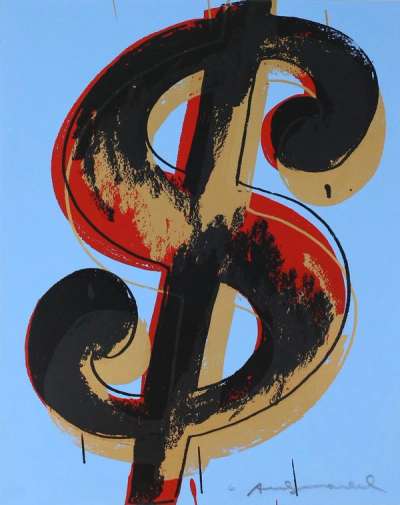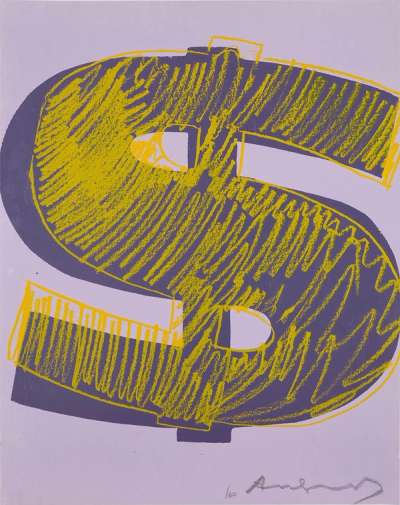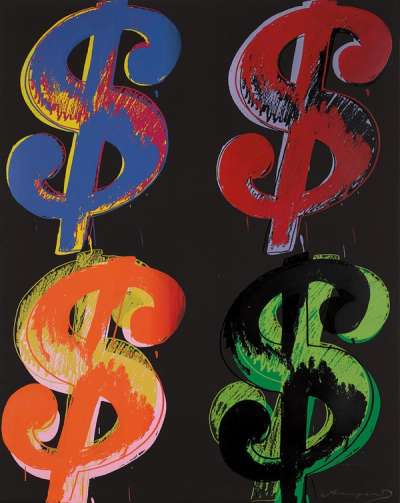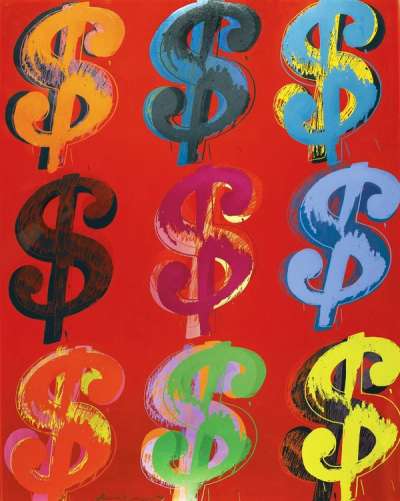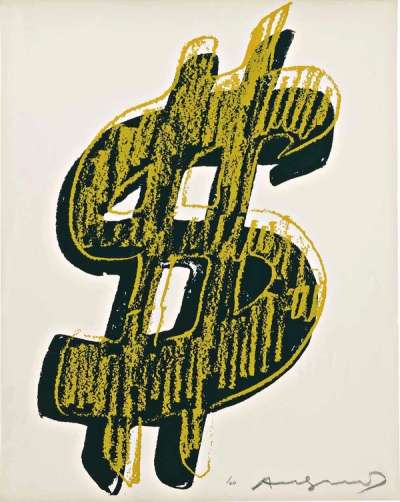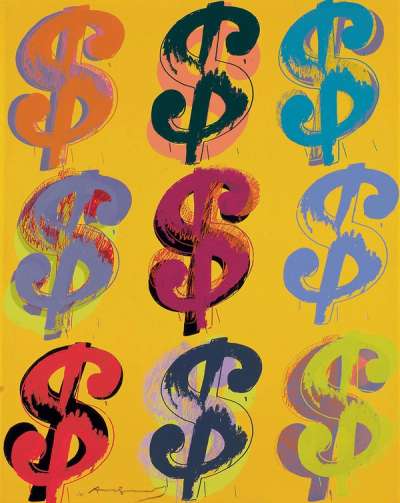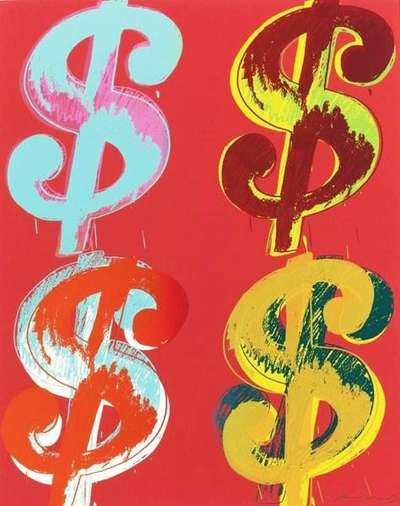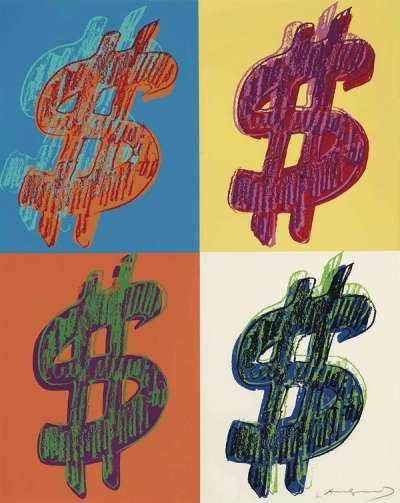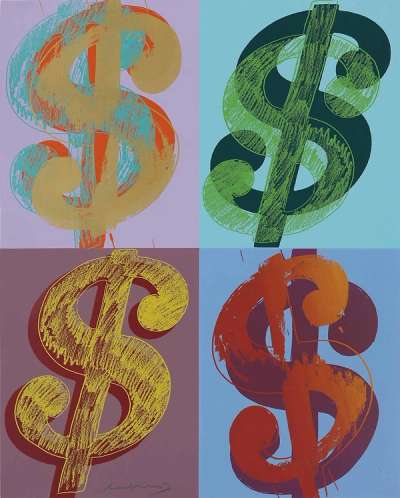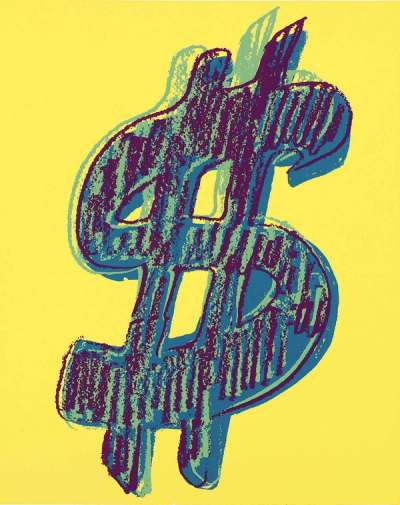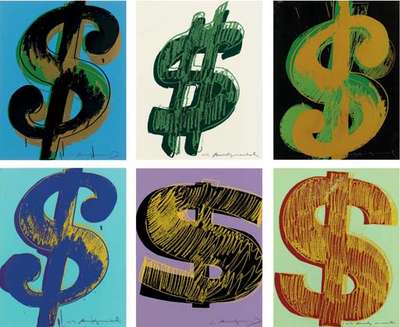
Dollar Sign 9 (F. & S. II.286)

Dollar Sign 9 (F. & S. II.286)
Signed Print
Andy Warhol
Price data unavailable
AAGR (5 years) This estimate blends recent public auction records with our own private sale data and network demand.
There aren't enough data points on this work for a comprehensive result. Please speak to a specialist by making an enquiry.
Medium: Screenprint
Edition size: 35
Year: 1982
Size: H 102cm x W 81cm
Signed: Yes
Format: Signed Print
TradingFloor
Track this artwork in realtime
Watch artwork, manage valuations, track your portfolio and return against your collection
Track auction value trend
Auction Results
| Auction Date | Auction House | Location | Hammer Price | Return to Seller | Buyer Paid |
|---|---|---|---|---|---|
| November 2018 | Freeman's | United States | |||
| October 2016 | Sotheby's New York | United States | |||
| March 2012 | Christie's London | United Kingdom | |||
| October 2008 | Christie's London | United Kingdom | |||
| April 2001 | Christie's New York | United States |
Meaning & Analysis
Printed in 1982, Dollar Sign 9 (F. & S. II. 286) is a signed screen print in colour by Andy Warhol. The print depicts nine dollar signs in a grid formation. Each sign is rendered in a different colour composition of bold, contrasting colours against a white backdrop. The signs are all unique in composition and colour, with coloured layering adding to the print’s vibrant feel and multi-layered aesthetic.
Dollar Sign 9 (F. & S. II. 286) is part of the Dollar Sign series. This is one of Warhol’s most famous series which takes the US currency as its source of inspiration. Produced during the commercial and material boom of the Raegan era, this series exemplifies Warhol’s ability to identify the cultural zeitgeist. By painting money, Warhol not only responds to the commercialism that came to define 1980s America, but he also captures his keen interest in money and wealth, linked intimately to his fascination with celebrity culture. Unlike other print series like Campbell’s Soup or Ads, in which Warhol takes and appropriates pre-existing images, with this series, Warhol drew the dollar sign from scratch. The artist drafted countless dollar signs before deciding on one that was suitable for the series.
By painting a symbol of money, Warhol shamelessly exposes the business of art as a commodity, making an explicit link between the money gained from a work of art and the work of art itself. In this print, Warhol experiments with colour, sketched shading and gestural lines. In doing this, he transforms the international symbol of US currency into a 20th century icon of Pop Art.
Andy Warhol was a leading figure of the Pop Art movement and is often considered the father of Pop Art. Born in 1928, Warhol allowed cultural references of the 20th century to drive his work. From the depiction of glamorous public figures, such as Marilyn Monroe, to the everyday Campbell’s Soup Can, the artist challenged what was considered art by blurring the boundaries between high art and mass consumerism. Warhol's preferred screen printing technique further reiterated his obsession with mass culture, enabling art to be seen as somewhat of a commodity through the reproduced images in multiple colour ways.
